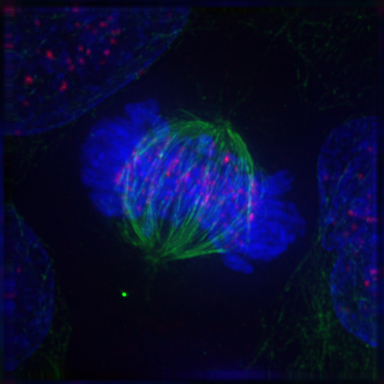A Noncoding RNA Regulates Chromosome Number

Researchers from UT Southwestern Medical Center have discovered a gene that keeps the number of chromosomes stable. NORAD (Noncoding RNA Activated by DNA Damage) transcripts are the first case of non-coding RNAs affecting chromosome number, and may have implications in cancer. The study was published in the journal Cell.
Joshua Mendell and his team have long been studying noncoding RNAs, like microRNAs that regulate gene expression and can affect development. The Mendell lab studies the relationship between nonconding RNAs and diseases like cancer. They discovered the role of microRNAs in the MYC protein ability to form tumors, and the involvement of microRNAs in different cancer pathways. Long noncoding RNAs (lncRNAs) have been previously described as regulators of several processes in the cell. However, they were never linked to chromosome stability.
NORAD is a molecular trap for PUMILIO proteins
Mendell’s team started analyzing a not very well characterized lncRNA that was induced after DNA damage, which they called NORAD. They found it was highly expressed, abundant and conserved among mammals. They discovered that the absence of NORAD caused gain or loss of chromosomes. Without NORAD, mitotic cells don’t distribute properly the chromosomes in daughter cells. Later, the researchers discovered that these errors in chromosome segregation are due to misregulation of PUMILIO proteins, PUM1 and PUM2. When NORAD is not present, PUMILIO proteins become hyperactive and cause genome instability. PUMILIO proteins repress factors involved in mitosis, DNA repair and DNA replication.
As many cancers involve genomic instability, the researchers are determining if PUMILIO or NORAD deregulation conduce to tumor formation.
Source: UTSouthwestern


